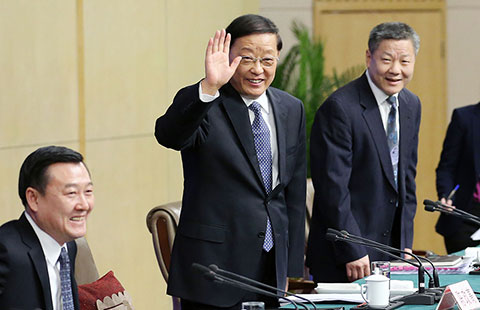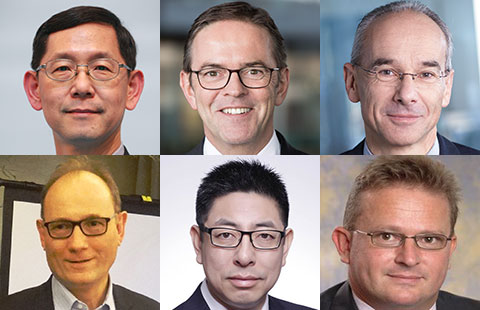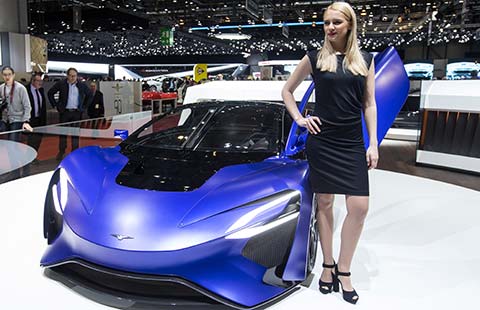Chinese companies embrace digitalization at IT exhibition
(Xinhua) Updated: 2016-03-16 10:54HANOVER - Chinese companies are making tremendous headway in embracing the era of digitalization, as shown by the strength and dynamism of the 500 Chinese companies at an ongoing IT exhibition here, experts say.
Out of the more than 3,000 companies from around the world at CeBIT 2016, one of the largest IT exhibitions globally, the Chinese companies have made a strong presence, unveiling the latest IT products and solutions and at the same time signing deals with leading service providers.
Chinese telecom giants such as Huawei and ZTE are no strangers at the event. "This year marks Huawei's sixth consecutive and most significant appearance at CeBIT. Its exhibition area at the show will span 2,500 square meters - twice the size of its space last year," Huawei said in a press release.
The company is showcasing Information and Communications Technology (ICT) products and solutions in the fields of cloud computing, big data, and Internet of Things (IoT) technologies. Among all the products and technologies, Huawei highlighted a new server called Kunlun.
According to Huawei, Kunlun is the world's first 32-socket x86 mission critical server which sets a new standard in mission critical computing and can "deliver superior performance and reliability to support enterprises' mission critical applications on a huge scale."
Kunlun was unveiled on Monday when CeBIT 2016 opened. At a press conference held here on Monday, Huawei announced that it had signed a memorandum of understanding with German robot technology company KUKA, under which the two partners will work together to develop smart manufacturing solutions for industrial markets in Europe and China.
Huawei and Deutsche Telekom announced at the press conference the launch of Open Telekom Cloud, an enterprise public cloud based on German data and privacy protection laws. Operated by T-Systems, the new public cloud platform will provide European enterprises of all sizes with on-demand, pay-as-you-go, secure cloud services to respond to fast changing market conditions.
ZTE is presenting a wide range of products and solutions as well. Under the theme "Enabler@M-ICT", ZTE displayed its ICT solutions for smart cities based on big data and IoT technologies.
Inspur, a leading Chinese cloud computing solutions provider, has been approached by some leading software provider in Germany.
Guo Jintong, General Manager of Inspur Overseas Marketing Department, said his company's competitive edge both in software and hardware had made it popular at the exhibition.
Chinese companies have an access to the biggest market in the world, which makes it possible for Chinese IT companies to test their products and solutions in a quick way, said Guo.
Zhang Cirui, CEO and Founder of a smart lighting network company Lettin in China, is convinced that smart home appliances should make people's life easier.
With the help of IoT and other technologies, Zhang is producing smart bulbs, which enable people to adjust the lights at their home by a simple click on the screen of their smart phones. The bulb is smart in the sense that it can serve as a bridge of WiFi signals with an additional part attached to it, Zhang said.
The progress made by Chinese IT companies has been recognized by their counterparts in Europe. At a summit held during CeBIT 2016 which was attended by officials from Switzerland, Germany and other countries on Monday, China and the United States have been identified as two countries with which Europe is trying to catch up in terms of digitalization.
- Agricultural e-commerce bridges China's urban-rural gap
- Alibaba to train 1 million rural e-commerce gurus
- China to integrate pan-Pearl River Delta development
- Shanghai coal imports jump in first two months
- Chinese auto maker Chery relaunches new cars assembled in Egypt
- Central bank's net forex sales indicate stabilizing yuan
- China's outbound direct investment surges in first two months
- Shenzhen-HK Stock Connect to be launched in 2016 for closer ties
















